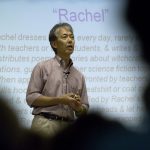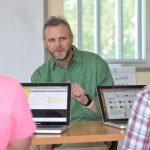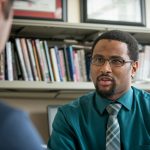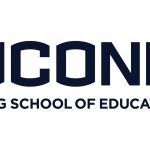Co-written by George Sugai, Neag School professor of special education, and Geoff Colvin, a retired research associate in the University of Oregon’s College of Education, this piece was originally published in the “Guest Viewpoint” section of The Register-Guard, a local newspaper based in Eugene, Ore.
Todd Cambpell, professor of science education, has been named editor of the Journal of Science Teacher Education, the flagship journal of the Association for Science Teacher Education.
Mentors and guidance counselors helped Erik Hines, an assistant professor of educational psychology, find his path. Now he is paying it forward.
The Global Sports Mentoring Program (GSMP)’s Empower Women Through Sports Initiative is an international initiative co-sponsored by the U.S. Department of State and espnW that partners emerging female leaders from 17 countries with leading executives and experts in the U.S. sports industry. For the second consecutive year, Neag School faculty members Jennie McGarry and Laura Burton will be serving in the coming weeks as hosts.
In this opinion piece, Assistant Professor Joseph Cooper weighs in on the recent #TakeAKnee protests and provides his insight into what he sees as the most powerful form of activism within a capitalist society: economic activism.
Neag School of Education professor emeritus Vincent Rogers has announced a planned bequest to the Neag School, designating a legacy gift of $125,000 to expand the Rogers Educational Innovation Fund in support of innovative projects carried out by teachers in Connecticut. Through his gift, elementary and middle-school teachers across the state will be able to apply annually for a $5,000 gift for use in the classroom.
Rachelle Pérusse, associate professor of counseling in the Neag School, shares her top 10 suggestions for adults and their aspiring postsecondary students on preparing for the college search.
The Neag School of Education this week welcomes Stephen Slota as an assistant professor-in-residence of educational technology, with a joint appointment in the School of Fine Arts Department of Digital Media and Design.
George Michna arrives at the Neag School of Education this week as director of assessment, accreditation, and accountability.
Congratulations to our Neag School alumni, faculty, staff, and students on their continued accomplishments inside and outside the classroom.










